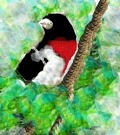|
marius
 |
Vocabulary List for this challenge
NOUNS
all the months of the year, answer, ant, apple, arm, Aunt, baby, back, bank, ball, banana, beans, bed, bell, bike, bill, bird, birthday, block, boat, Bob, bone, box, book, bookstore, box, boy, bread, broom, brother, brush, bug, cab, cake, Candy, cap, car, cat, chair, chicken, children, chin, chip, Christmas, city, closet, clothes, clutter, coat, coffee, Coke, company, cookie, cop, corn, cow, crop, Dan, day, desk, diner, dinner, diploma, dirt, doctor, dog, door, dress, drip, duck, egg, exit, eye, factory, family, farm, farmer, fat, father, Father’s Day, feet, fence, finger, fire, fish, fishing pole, floor, flower, foot, fork, Fran, Frank, French fries, friend, frog, game, garden, gate, GED, giant, girl, glass, glue, goat, grass, green beans, grill, ground, Gus, hair, Hal, ham, hand, hat, he, head, her, hero, heroes, hill, his, hole, home, hood, horse, hose, hospital, house, I, idea, Jack, jacket, jam, Jan, Jane, Jill, job, joke, kids, kitchen, kitty, laugh, leg, letter, lunch, make-up, man, Maria, me, men, Mike, milk, mind, mine, money, morning, mother, Mother’s Day, mouse, Mr. and Mrs. Bell, Mr. and Mrs. Green, Mr. and Mrs. Hill, Mr. and Mrs. Jones, mud, my, myself, name, Nancy, napkin, neighbor, neighborhood, nest, night, noon, nose, number, nurse, odd jobs, order, our, ours, oven, paper, parents, party, Pat, pen, pencil, pepper, pet, pharmacy, Phil, phone, picture, pig, pin, problem, question, Quinn, rabbit, rain, Ramon, rat, ring, river, road, robin, room, rug, rule, salt, sandwich, Sandy, Santa Claus, sauce, school, seed, she, sheep, shoe, sidewalk, sister, sit, smell, snow, son, song, spaghetti, spoon, squirrel, Stan, stick, stove, street, sun, table, Thanksgiving, their, theirs, them, they, thing, time, Tony, top, toy, tree, truck, us, vacation Valentine’s Day, valley, Van, Vicky, wall, watch, water, Wayne, we, weather, week, who, wind (that blows), window, woman, women, wood, work, year, you, your, yours, Yo-Yo the dog.
VERBS
am, are, ask, ate, be, been, bless, break, bring, brush, buy, call, came, can, care, carry, clean, close,
closed, come, comes, cook, could, cry, cut, did, dig, do, does, don’t, done, drag, draw, drink, drip, drive, drop, dry, eat, exercise, fall, fed, feel, fill, find, fish, flip, fly, food, found, gave, get, give, giving, goes, got, grill, grow, has, hate, have, hear, help, hold, hug, hurt, is, it’s, jog, jump, keep, kick, know, laugh, learn, led, let, lick, like, likes, listen, live, look, love, made, make, may, mop, nap, open, order, own, park, pay, pick, plan, play, pull, push, put, quiz, ran, read, refuse, ride, rock, run, said, save, saw, say, see, seem, seen, sell, shall, shop, shot, should, show, sing, sit, skid, slap, sleep, smile, smoke, snip, sold, spill, stand, start, stir stop, study, sweep, take, talk, tell, thank, think, trap, tries, try, turn, use, walk, want, warm, was, wash, went, were, will, wish, work, would, write, yawn, yell, zip. (Irregular verb tenses are difficult so we use the verb “drive†but not “drove,†“hold but not “held.†Other forms of verbs are fine, such as help, helps, helped, helping.)
ADJECTIVES
bad, big, black, blue, brown, cold, dark, difficult, dry, easy, fast, fat, flat, fresh, full, funny, furry,
fuzzy, gigantic, good, grand, green, hard, high, hot, huge, ill, kind, large, light, little, long, loud, low, mean,
new, old, pink, pretty, purple, red, round, sad, short, sick, slick, slow, small, smelly, soft, stinky,
sweet, thick, thin, tiny, well, wet, white, yellow
OTHER WORDS
a, about, after, afraid, again, all, aloud, also, always, an, and, any, around, as, at, away, bad, because, before, best, better, both, but, by, eight, every, far, fast, first, five, for, four, from, fun, good, here, him, his, how, if, in, into, it, its, just, many, much, most, my, near, never, no, not, now, of, off, on, once, one, only, or, out, out loud, over, please, right, seven, shall, six, so, some, soon, ten, that, the, then, there, these, this, those, three, time, to, today, together, too, two, under, up, upon, very, way, well, what, when, where, which, why, win, with, won, would, yes
|
